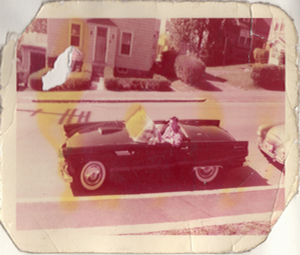Concerned about Driving? Caring for Seniors On and Off the Road
As adults in middle age and as adult children providing senior care, it can be easy to forget that our parents have been driving for longer than we have been alive. Some seniors have been driving for more than 70 years and it feels like a fundamental part of their life. At 52 I have been driving for 36 years and I take it for granted that I can go where I want when I want.
Driving can be the dividing line between independence and dependence, between socialization and isolation. And for these reasons this is one area of senior care that can be most difficult to approach. We feel guilty suggesting that our parents are no longer capable and independent. Yet we are awake at night in fear of the phone call reporting an accident.
Further compounding the challenge that this talk presents is that there is no black and white age on paper stating this is the moment in life we give up the car keys. Even the Clinical Dementia Rating(CDR) Scale leaves room for question. This scale goes from severe dementia at rating of 3 to no dementia at 0. For those falling in the 3 and 2 range-no driving. Mild dementia is rated at 0.5 and most of those who fall in this area can still drive. The big question mark comes in at a CDR rating of 1. There are studies to support that 76% of people with mild dementia could pass an on-road driving test however the American Academy of Neurology recommend that those with mild dementia strongly consider discontinuing driving. http://www.johnshopkinshealthalerts.com/alerts/memory/Driving-and-Dementia_7054-1.html?s=W3R_141018_001&st=email
The truth is that this decision may take time to adjust to, not just for the senior but also for adult children who often do not consider the impact to their own life. If you can get your parent onboard, even making the decision to stop driving on their own, the results are better in terms of later arguments and confusion. It can be a topic that is revisited over years as children get accused of taking away car keys and leaving a parent stranded.
Many physical and medical changes come with age and some impact the ability to safely drive. Vision changes can mean limiting the time of day to daylight hours or vision can be poor enough that driving is no longer possible in the event of age related macular degeneration or glaucoma. Medications commonly used can cause fatigue. Loss of fluid in joints means a change in height that could require a change in seat height.
There is no definitive age at which anyone must stop driving. All factors must be considered. Is your parent missing stop signs or red lights? Are you finding new dents and scratches? Is your parent having any trouble finding their way to or from familiar places? The time for your senior parent to stop driving is here.
If you are worried but are not seeing any hard indications that the senior in your life must stop driving now, start the conversation anyway. Talk about some of the accidents you have read about. Ask them to consider not driving after dusk. Ask them to talk to their doctor about all of the challenges that come with driving. Lay the ground work for the future.
Lastly, begin to talk about options for transportation in your area. Is there public transportation or a senior service? Are there agencies that can assist with transportation? Compare costs and value. Flexibility and responsiveness are important factors in the decision. Knowing that there are options for transportation can help ease the pain of giving up driving for seniors.

